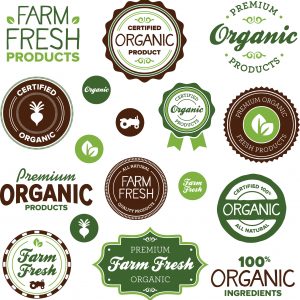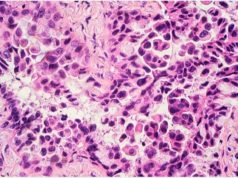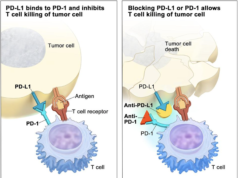Choosing to eat organic food has become increasingly popular in the last decade, as advocates believe the extra cost goes a long way to protect their health.
But does eating organic food really make a difference?
Until now, the benefits have been controversial. But a new French study recently confirmed that “going organic” can indeed lower your cancer risk. The study, which followed 70,000 adults for a period of five years, discovered that those who consumed organic food on a regular basis had 25% fewer cancers than those who did not eat organic foods at all. Participants who ate large amounts of organic dairy products, fruits, vegetables, and meats had less cases of lymphomas and postmenopausal breast cancers.
The study’s participants provided the researchers with three 24-hour records of their food intake, which included the kinds of foods they ate, how frequently they ate them, and what the portion sizes were.
They also gave information about their health statuses, occupations, educations, and incomes. These details helped the researchers to account for other possible differences in health based on higher income levels or more years of education.
Although the researchers did expect to see that organic foods provided benefits, they were surprised at how much of a difference they made. Consumers of the organic foods had 76% fewer lymphomas and a 34% reduction in breast cancers.
Julia Baudry, lead author of the study, said that what’s significant about the results is the “extent of the reduction.” She makes it clear that the researchers are not claiming that eating organic foods can reduce cancers, but rather that they definitely could contribute to lowering cancer risk.
What makes organic food “better” for you?
There are certain characteristics that food must have in order to be considered “certified organic” by the Department of Agriculture.
Produce has to be grown without the use of most synthetic fertilizers and pesticides, and it can’t be genetically modified. Animals used for meat must not be given any hormones or antibiotics, and they must be fed organic food.
The harmful fertilizers, pesticides, hormones, and antibiotics are all things that have been shown to increase the risk of developing cancer and other harmful diseases.
But the jury is still out on that claim. Many medical professionals, as well as workers in the farming industry, claim that eating conventionally-grown food is just as safe as eating organically-grown.
Teresa Thorne, a representative of the Alliance for Food and Farming, assures the public that non-organic fruits and vegetables do not pose an increased cancer risk. In an email statement, Thorne wrote that “Decades of peer-reviewed nutritional studies largely conducted using conventionally grown produce have shown that eating a diet rich in fruits and vegetables prevents diseases, like cancer, and leads to a longer life.”
Similarly, Dr. Frank B. Hu, chairman of the department of nutrition at Harvard University, commented that the important thing is for Americans to consume more fruits and vegetables in general, organic or not. The current recommendation from the American Cancer Society is that a diet rich in fruits, vegetables, and whole grains rather than refined grains, red and processed meat, and sugars, will help to keep cancer at bay.
So what can consumers take away from this new study?
The study’s results are promising, but as Dr. Hu warned, they are too preliminary to warrant official dietary change recommendations. He urged government organizations like the National Institutes of Health and the Department of Agriculture to offer funds for more research in this area. The science is “strong enough,” he claims, to justify more research on whether an organic diet is a significant factor in decreasing cancer risk.































